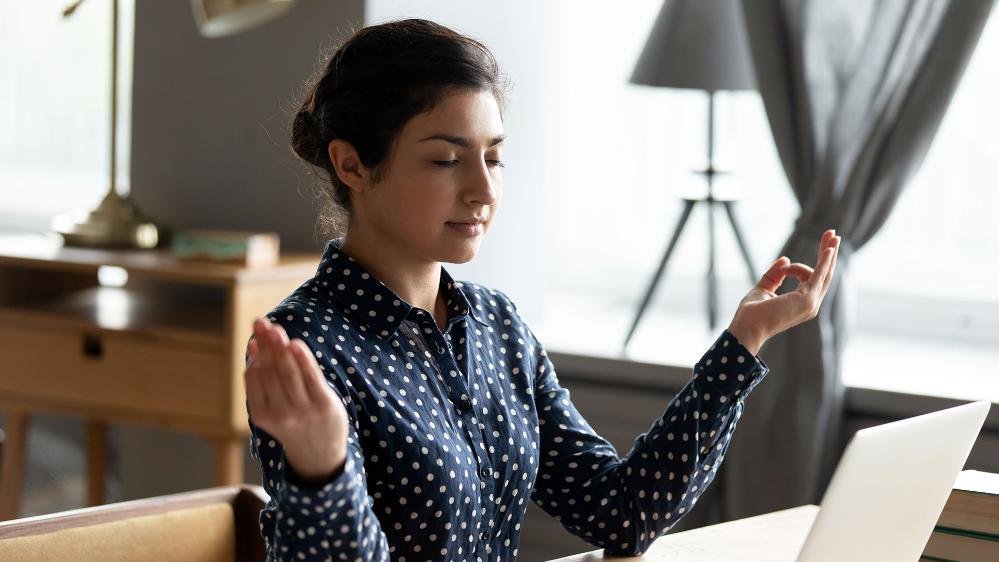Digital fatigue is real
But there are ways out of it
September 9, 2021
A few tips on how to combat emotional exhaustion while in lockdown
It’s clear that lockdowns leave a legacy, and it’s not a positive one. For our student community, they must have been extremely hard. Not seeing family and friends is hard. Not being able to high-five a neighbour or sit leisurely in a local café is hard. Having events cancelled and living most of your social life through electronic devices is hard too.
Digital fatigue is just one of the symptoms of this new normal. Because when you combine social isolation with plenty of screen time and limited outdoor activities, you get a recipe for emotional exhaustion.
"I'm just so over online webinars and video calls. I miss coming to the campus, going to lectures, hearing the buzz," admits Claire, a second-year University of Wollongong (UOW) student.
"This pandemic has taken a significant toll on student wellbeing. There are so many things we can't do that we may feel completely out of control," says Dr Judy Pickard, Senior Lecturer in Clinical Psychology at UOW and mindfulness expert.
Despite these negative sentiments, there are a few simple ways to maintain resilience and a positive attitude when spending a lot of time at home.

1. You're not alone
"The wonder of mindfulness is that through our senses, it connects us to what's happening around. It helps us to stay present and focused. But how to embody that feeling if you spend most of your time online? With most of our activities happening through devices, the senses are not there, so we're struggling," Dr Pickard explains.
It may be comforting to realise that all our feelings are completely normal and quite universal. Even if we feel outside of our community, we're not alone.
2. Take one step at a time
When lockdown days blend into one another, with every Monday no different than a Friday, we may feel unmotivated to plan even the smallest pleasures like a walk to the beach or going for coffee. So how to combat inertia when faced with the repetitiveness of life? By doing one thing at a time, Dr Pickard advises.
"If we think ahead and engage in worrying about the uncertainty of the future, we take on all the weight in one moment. And it gets heavy. But if we think about what we can do today, we maintain 'the here and now', and things become manageable," she adds.
3. Get curious and let go
According to Dr Pickard, practising mindfulness means getting curious about the current situation.
"We all tend to hold on to different expectations. We know we're missing out, and we tend to obsess about it." The only way to release the heaviness of 'what could have been' is by letting go of our preconceived ideas. "Then we can think how to make this new situation work for us," adds Dr Pickard.

4. Explore new avenues
Tired of your little desk in the bedroom? Explore taking your computer and going to the garden. Solo morning breakfasts are getting dull? Take it out to the park where you can do some people-watching. We may not have many options to explore right now, but there's always room for spontaneity.
"A combination of online and offline activity is good for us. If we always study in the same place at home, it becomes quite numbing. Even the smallest changes can help to get us through," Dr Pickard explains.
5. Take care of yourself
Mindfulness is also the practice of self-compassion. "We can be our harshest critics, having high expectations of how we're supposed to be doing or feeling," says Dr Pickard. By allowing ourselves to be human – to let go of the struggle and accept the situation as it is, and take more time and space than we usually do – we're building our mental strength.
Self-care is an important second step. "First, we need to admit that it's OK to not be OK. And then we can think of what we need and figure out how to do that." Sometimes, it'll be a call to a friend, another time – a piece of cake or a good cry.
If you are experiencing distress and need support, you can contact:
UOW Counselling Services: https://www.uow.edu.au/student/support-services/counselling/
Lifeline: 13 11 14
Beyond Blue: 1300 224 636
Headspace: 1800 650 890
https://www.ruok.org.au/findhelp